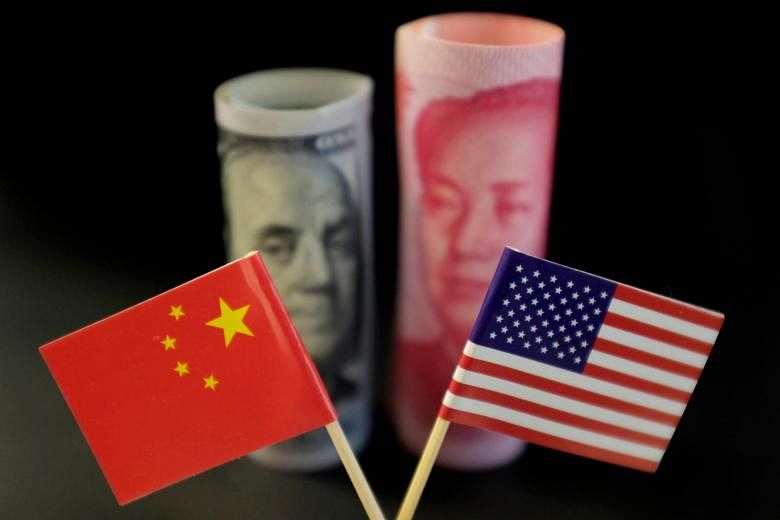BEIJING (BLOOMBERG) - China sought to allay fears it wants to topple the US dollar as the world's main reserve currency as Beijing makes bigger strides in creating its own digital yuan.
People's Bank of China (PBOC) deputy governor Li Bo said the goal for internationalizing its currency is not to replace the dollar, and the efforts to create a digital yuan are aimed at domestic use.
"For the internationalization of the renminbi, we have said many times that it's a natural process, and our goal is not to replace the US dollar or other international currencies," Mr Li said on a panel at the Boao forum on Sunday (April 18). "I think our goal is to allow the market to choose, to facilitate international trade and investment."
China's central bank is currently testing the use of a "digital yuan" in various pilot programmes across the country. A report earlier this week showed the Biden administration is increasing its scrutiny of China's progress toward the digital yuan amid concern it could kick off a long-term bid to displace the dollar.
The PBOC has been working on a digital currency since 2014 and its moves have heightened interest among central banks and policy makers, while the spread of cryptocurrencies has added to a sense that competitors to regular cash could change how the financial sector operates. The PBOC has moved closer to becoming the first major central bank to launch a virtual currency, rolling out a trial for consumers and businesses in 11 cities across the country.
"The motivation for the e-yuan, for now at least, is focusing primarily on domestic use," Mr Li said. International "interoperability is a very complex issue and we are not in a hurry to reach any particular solution yet," although there could be cross-border use "in the long term," Mr Li said.
The central bank is planning to test the cross-border use of the digital yuan at the 2022 Beijing Winter Olympics, where it could be used by both domestic users as well as athletes and visitors from overseas, Mr Li said.
Agustin Carstens, general manager of Bank for International Settlements, said on the same panel there was huge potential in the cross-border use of digital currencies as they could make foreign exchange transaction and payment settlement extremely efficient. He said countries can explore various ways to achieve international interoperability, including making different systems compatible and creating connectivity links among the systems.
While the digitisation of the yuan could benefit its use in cross-border transactions, the key factor in determining the currency's global role is whether China will relax its capital controls, said Shen Jianguang, chief economist at JD.com. "If you want to have a global reserve currency, you need to allow foreigners to hold it, to use it."
China will also need to allow its citizens to buy more foreign assets, further develop its financial markets and allow greater exchange rate flexibility in order to push for the internationalization of yuan, Shen said in an interview at the forum.
China has seen a flood of capital flows into its financial markets since last year, boosting the amount of yuan traded globally. Yet, in the context of its vast markets, foreign ownership of local stocks and bonds remains relatively low at around 5 per cent and 3 per cent respectively. The yuan's share of global payments and central bank reserves is still only about 2 per cent.
"The digital yuan is a means to help monetary policy efficiency and cross-border usage with partners that tend to trade with China in goods and services, less so the major economies like the US," said Stephen Chiu, Asia FX and rates strategist at Bloomberg Intelligence. "Digital or not, it's not so easy to move the dollar's dominance, be it as a trade settlement or reserve currency."
The initial plans for a digital currency weren't motivated by considerations of cross-border use, according to former PBOC governor Zhou Xiaochuan, who noted that there are many issues with using a digital currency across national borders. International use could affect monetary policy independence, and it's important it isn't used for crime, he said on the same panel in Boao.

